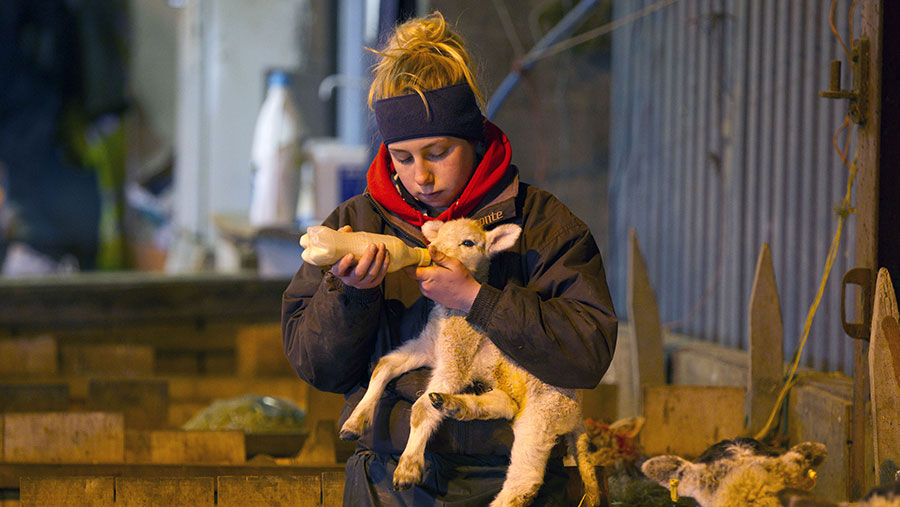Why student vets are not going into the industry
 © Tim Scrivener
© Tim Scrivener Farmers and vets are being called on to be more inclusive and provide positive experiences during placements for student vets to increase the number of farm vets.
It follows a survey carried out by the student-led National Farm Animal Veterinary Society (FAVS), which found students who experience negative experiences while on placements are less likely to consider a career as a farm vet.
See also: 4 ways to improve farm vet recruitment and retention rates
Poor retention and recruitment rates are already plaguing the profession.
Farmers Weekly carried out a survey of 400 vets and farmers in 2021 and found similar concerns.
FAVS surveyed 180 UK vet students to find out why more new graduates were deciding not to work in large animal practices.
When questioned, 86% of students said they had considered becoming farm vets, with the remaining 14% undecided.
Students said the following points deterred them from becoming farm vets:
- 21% had a preference for small animal work
- 21% cited lifestyle factors such as working hours, low pay, paperwork and family life
- 16% noted a lack of experience or knowledge of farm animal medicine
- 11% had moral or ethical issues with becoming a farm vet
- 5% were concerned about angry farmers/clients.
Positive experiences are vital
The survey found students who had positive experiences while on extramural study placements were more likely to become farm vets.
In fact, 74% of students said positive experiences while on placement had made them consider this role.
In comparison, 6% reported negative experiences and said they were less likely to become a farm vet because of them.
Students who had negative experiences listed:
- Sexism
- Lack of involvement while shadowing the vet
- Receiving negative feedback during a placement
- Poor animal welfare
- Being judged for lifestyle choices.
Lack of diversity
A lack of diversity within the veterinary industry could also be discouraging students, with 57% of students believing the industry is not diverse enough.
A further 21% said they did not feel represented, and 20% felt unsure.
Reasons for under-representation included:
- Male domination (13%)
- Non-farming background (6%)
- Race and ethnicity (2%)
- Gender identity and sexual preference (2%)
- Vegan and vegetarian diets (1%)
- Low-income background (1%)
- Disability (1%).
Georgia Owen, a student at the Royal Veterinary College and national FAVS president, said while it is promising that many students are still considering a career as a farm vet in the UK, it is concerning that many feel unrepresented and believe the profession lacks diversity.
“To encourage the widest possible range of graduates into farm vet practice, employers and vets should be conscious of student experiences while on placement and aim to provide a supportive and welcoming environment, regardless of gender, race, ethnicity or socioeconomic background,” she advised.
How can the industry make a change?
- Actively encourage students from non-farming backgrounds to experience extramural studies
- Provide a supportive learning environment for students nervous about farm work
- Provide diverse role models to inspire students in the farm veterinary sector
- Be aware of negative behaviour towards students during extramural studies and have strict policies and a support network in place should this occur
